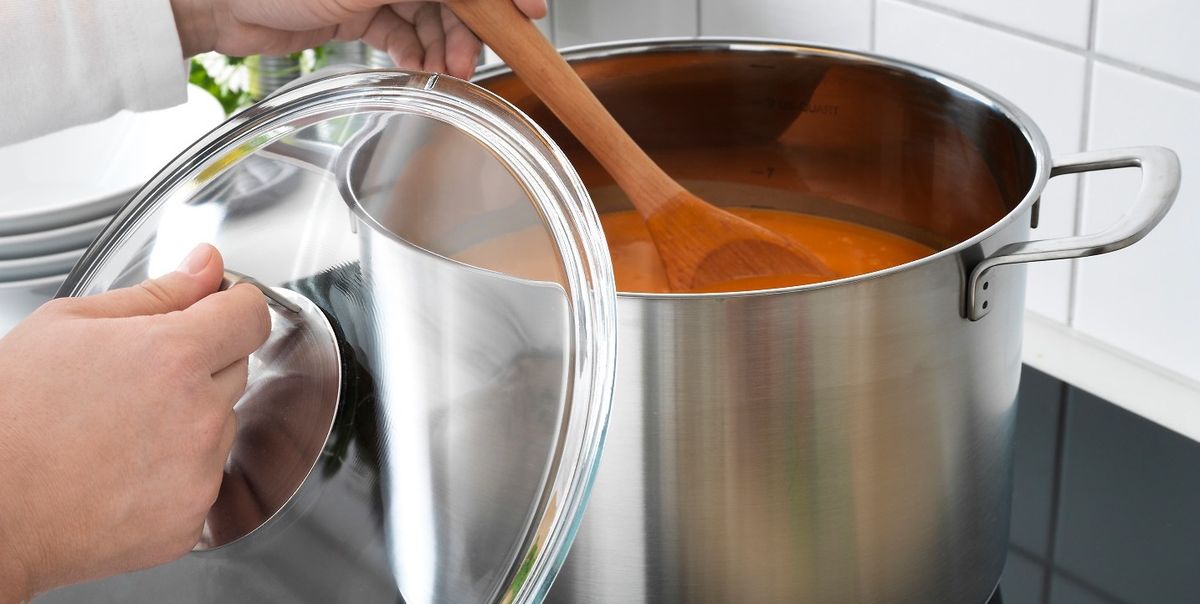Embarking on a culinary exploration, Cook Eat Delicious delves into a longstanding culinary debate: Are stock pots superior to stock cubes? This exploration of flavor, nutrition, and convenience navigates the kitchen terrain to aid you in making an informed decision about the ideal option for elevating your culinary masterpieces.
Join us as we assess the merits and drawbacks, relish the subtleties, and ascertain which culinary companion—the traditional stock pot or the convenient stock cube—deserves a permanent spot in your kitchen arsenal.
Exploring the Basics of Stock Pots and Stock Cubes
Stock pots and stock cubes, both essential in the culinary realm, serve distinct purposes in the kitchen. A stock pot is a generous vessel where ingredients like bones, vegetables, herbs, and water simmer over an extended period, yielding a flavorful and nutrient-rich liquid foundational for various dishes. Conversely, stock cubes are condensed, pre-packaged stocks crafted from dried meat or vegetable juices and other flavorings.

While each has its unique role, there are fundamental similarities:
- Flavor Enhancement: Both elevate the flavor of dishes, such as soups, stews, sauces, and risottos.
- Base for Soups and Sauces: Both serve as the base for creating soups and sauces, providing a foundation of rich, savory flavors.
- Versatility: Both offer flexibility in creating various stocks or broths, including chicken, beef, vegetable, and fish.
Stock pots and stock cubes, both essential in the culinary realm, serve distinct purposes in the kitchen. A stock pot is a generous vessel where ingredients like bones, vegetables, herbs, and water simmer over an extended period, yielding a flavorful and nutrient-rich liquid foundational for various dishes. Conversely, stock cubes are condensed, pre-packaged stocks crafted from dried meat or vegetable juices and other flavorings.
Despite these commonalities, it’s crucial to recognize the differences in preparation methods, time investment, and depth of flavor achieved between using a stock pot and stock cubes. The choice hinges on factors such as time constraints, personal preferences, and the dish’s specific requirements.

Are stock pots better than stock cubes?
Utilizing stock pots presents several advantages for both home cooks and professional chefs.
Firstly, they afford complete control over ingredients and the cooking process, enabling customization for dietary restrictions or specific taste preferences.
Secondly, stock pots contribute to sustainability by allowing the use of kitchen scraps like vegetable peelings and leftover bones, reducing overall food waste.
Lastly, freshly made stock from pots tends to boast a richer and deeper flavor profile, enhancing the overall taste of dishes it enhances.
On the other hand, stock cubes, despite being an alternative, have their unique merits. Their primary advantage lies in convenience. In situations where time is a constraint or a recipe requires a small amount of stock, a stock cube can be swiftly dissolved in hot water to produce instant stock.
Additionally, stock cubes have a prolonged shelf life and are easily stored, making them a practical choice for those who infrequently prepare soups or stews. The choice between stock pots and stock cubes often hinges on factors such as time, convenience, and the specific needs of a recipe.
Weighing Up the Health Implications
When considering health implications, both stock pots and stock cubes present different considerations.
Stock pots offer the advantage of controlling and adjusting the amount of salt to suit dietary needs and preferences. Homemade stocks typically contain a variety of nutritious ingredients like vegetables, lean meats, herbs, and bones, contributing valuable nutrients such as vitamins, minerals, and collagen to your diet. It allows you to regulate the amount of salt used, which is beneficial for those monitoring sodium intake. However, it’s important to note that homemade stocks can be high in fat if not properly skimmed during the cooking process.
On the other hand, stock cubes provide convenience but may come with some health considerations. They are typically high in sodium, which, when consumed in excess, can contribute to increased blood pressure. Some stock cubes use additives like monosodium glutamate (MSG) to enhance flavor, which may be a concern for individuals sensitive to MSG. Additionally, some brands may include hydrogenated oils, posing issues for certain individuals.
In conclusion, the choice between using stock pots and stock cubes largely depends on individual needs and circumstances. Stock pots offer flavor depth, nutritional benefits, and control over ingredients, making them ideal for those who value homemade cooking and have the time to invest. Meanwhile, stock cubes provide convenience and practicality, serving as a handy shortcut in the kitchen when time is short or the volume of stock required is minimal. As with most culinary decisions, it’s all about finding the right balance that works for you.







